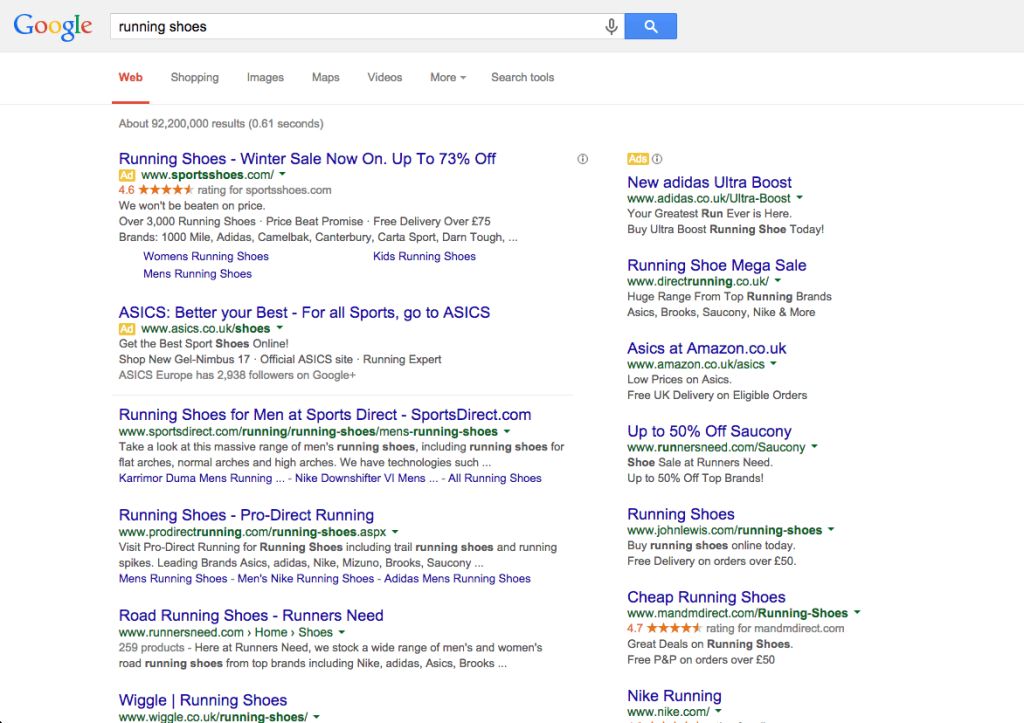Search Optimisation For Small Businesses
SEO, or search engine optimisation, is the term coined to describe various tactics used by businesses to increase their visibility on the internet. This is achieved by gaining a higher SERP (search engine ranking page), which in turn increases the amount of productive traffic to the site. Google and other search engines are constantly updating the algorithms used to qualify what counts as a ‘good’ website which is worthy of a high ranking, and each new algorithm does a better job of weeding out the chaff. There are three factors which will always have a positive effect on your ranking if done correctly:
Content
In the beginning Google spiders searched for keywords and ranked a page according to how many times it featured the relevant word or phrase. This led to keyword stuffing, which fast became outlawed as better, brighter algorithms came into play. Google want their users to be satisfied with the results they receive for all their searches, so reward sites which produce fresh, original and engaging content above all others. To become more visible to the spiders it is imperative that websites constantly update with new content that is of value to the reader. The use of relevant keywords is still helpful, but only where they are naturally a part of the content. The fastest way to provide readers with fresh content on a regular basis is to set up a blog page as part of the site and add to it frequently.
Connectivity
Link-building has long been recognised as a vital part of a good SEO campaign, but the mistake many make is ranking quantity over quality. What Google looks for is a number of authority links to and from other trusted sites, including social networks. A few links from well established sites hold far more value than hundreds of links from sites which Google has already deemed untrustworthy for any reason. If you can demonstrate that your site is a valuable resource then you will build up your own reputation within the search engine. This includes keeping your content updated to engage with readers, which will in turn bring you in more natural links such as shares, likes, tweets and +1s. Linking out is another valuable way of staying connected with other businesses in your industry and increasing your internet visibility.
Trust
A trusted website will rank higher than one which looks suspicious, as the search engines do not want to be responsible for directing consumers to a site which is harmful in any way. A website builds trust through links and also through social and personal reactions. For example, a site at which customers regularly leave personal details such as credit card numbers which are stored securely begins to prove itself as trustworthy. Likewise a site which has a strong social media following demonstrates that the public trust it.
The search landscape is changing all the time, yet always towards rewarding those who can engage readers, encourage conversation and build trust by providing an interesting, informative website geared towards what the customer wants rather than what the business needs.
Great SEO Advice for Small Businesses
Search engine optimisation plays a key role in online marketing strategy for any business. Ranking highly on a Google search makes your business visible online and drives more traffic to your website. The top result in any Google search receives an average of a third of all traffic, while all those listed on page one combined receive 92%. These figures show that climbing the ranks and becoming visible on the first page of a search can make a huge difference to how much traffic your website receives. For small businesses it is entirely possible to follow simple rules related to SEO – many of the ways in which to improve your SERPs (Search Engine Results Page) rating are free, taking only time and effort.
These days, organic search results are being pushed further and further down the page, shopping results using images can also create even more paid ‘real estate’ at the top of the page, so ranking well organically has become even more important, as has a strong ‘paid marketing’ campaign.

Building the Basics
Before you can begin to promote your website you need to have a quality, well-functioning website to being with. Ensuring everything is well laid out with clean code, titles, headings and text makes it easy for the reader to follow and also for the search engines to figure out exactly what it is all about. Considering mobile as well as desk top helps make your website accessible to even more people. Create a domain name that makes it clear who you are, such as one containing your business or brand name and your location. NAP (name, address, telephone number) information should be incorporated into each individual page of the site, not just the landing page or contact page.
Write for Readers, Not Search Engines
Those websites that rank highest with Google and other search engines are those that are deemed to have value to the reader. This can be achieved through adding fresh, engaging and original content on a regular basis with focus on what the reader might want to see rather than on keywords or other aspects of SEO. As search engine algorithms become more sophisticated the focus on consumer or reader engagement becomes stronger. Practices such as keyword stuffing are known as black hat techniques and your website will be penalised if search engines detect this. By the same token, pages and pages of product descriptions with nothing else to engage do not have much value to the reader. Tactics such as starting a blog, engaging with social media and interacting with customers in a variety of ways including reviews and comments sections on the website make the process more interesting for the site visitor and therefore make Google happy.
Use the Right Keywords Effectively
While keyword stuffing is (quite rightly) frowned upon, being aware of appropriate keywords and inserting them into content where they would appear naturally can help your website rise through the rankings – think of this as helping Google understand what your website’s content is all about. Use free online analytics tools such as Google Analytics to determine what keywords work for your website. Also, keep track of what terms people type into the search facility on your website if you have one. In most cases these will be the same terms people type into Google or other search engines. Where possible try to include a keyword in the page titles of your website, then aim to mention once or twice within each piece of new content.
Work with Social Media
Building strong, trusted links is more important than having hundreds of links. Presence on different social media sites help to build strong links. These sites are also ideal for running promotions, updating customers on new products or special offers and offering exclusive discounts, generating customer feedback and providing a forum for asking questions. Social media gives customers the opportunity to opt-in to your advertising, empowering the individual and generating stronger brand loyalty.
Build Local Listings
Check all the leading sites for local listings such as Yelp, Facebook, Google and TripAdvisor (if applicable). Ensure that your business is listed and that you have ‘claimed’ the listing where required. Include your NAP details and update them whenever necessary. Check your business is listed in the most appropriate categories and include relevant keywords where possible. Build out the listing by including images and photographs, videos and links to your website, making it as attractive and eye-catching as possible. Where your business spans multiple locations, take the time to create listings for each location. Include relevant local information on your listings and your website, such as upcoming events in the local area.
With a little time and knowledge most small businesses should be able to slowly but steadily build their online visibility through search engines. Remember that rapid results are unlikely as it takes time for search engines to begin to recognise sites as engaging, informative and trustworthy. Figure out which methods work best for your business over time and focus your energies on the areas that have the most effect.
Next Post
Similar Post
Similar Post




